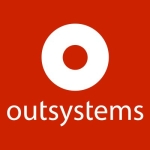What is our primary use case?
As a solution architect and developer working on service management and HR, many of my projects cover the development of modules for
- operations management,
- project management,
- finance management,
- resource management,
- governance,
- risk and compliance,
and more, typically within the sphere of business management in general.
For me and my team, ServiceNow Now Platform has many capabilities that we leverage to bring solutions to the problem statements in these areas, mainly according to agile methodology.
If we are required, for example, to extend an application to external or internal users of your company, we would use ServiceNow to help with this process. Specifically, in this case, we would use HRSD (HR Service Delivery) which interlinks all of your own employees, external users, and others. The CSM part of ServiceNow aids in linking all your business services that are being used by service providers and everyone else, and it enables you to derive your own organizational service management structure exactly as you want it.
ServiceNow also provides a powerful system that gives you ample information on what has broken and where, and offers plenty of solutions for fixing those things, particularly when it comes to orchestration, which really extends your capability for automation. You could say that it brings a sort of intelligence into your organization with its various features and functionalities.
Having implemented ServiceNow Now Platform for many global clients with millions of users over the years, I have seen it in use across vendors, former resources, internal resources, external resources, and amongst these in many different ways and through many different applications.
Our standard deployment environment nowadays is via the cloud, and we don't keep anything on-premise. However, I have previously implemented ServiceNow Now Platform on-premises during the initial stages of working with ServiceNow in the banking sector where we deployed it on-premise, but they eventually never released it. This work mainly involved the ITSM and operations part of ServiceNow Now Platform.
We also utilize ServiceNow to help take care of cloud and asset management, such as when dealing with the licensing for Azure, Amazon Web Services, and so on. Then there's the work I've done with ServiceNow Security Operations, which involved using various SecOps modules for security incidents, etc., and which required integrations with tools such as Tanium, Splunk, and Azure Security Management. Here we used ServiceNow to generate the events, security incident alerts, and more, and currently we still have remediation tasks being completed in ServiceNow, where the risk assessment features and other solutions are in place to orchestrate everything.
How has it helped my organization?
The customer service management aspect of ServiceNow Now Platform lets you create your own custom organizational service management structure just the way you want it, while providing a troubleshooting system that helps you figure out what's broken and how to fix it with multiple possible solutions. ServiceNow's orchestration mechanisms also help to extend an organization's automation capabilities in such a way as to bring a real sort of intelligence to the table.
What is most valuable?
At this point, over and above what ServiceNow actually is, the key is that it's really nothing but a web service. Whether it's a form or anything, the best part is that you can easily leverage anything of ServiceNow for any application anywhere just by calling the REST endpoints and handling the request messages.
Let's say you want to onboard new users or customers, import new company details, or add any different type of data — with ServiceNow Now Platform, this becomes easy. As a concrete example, suppose you have some users on Active Directory, some on LDAP, and some on your own cloud, you can integrate all of these users and uniquely manage them with ease thanks to how mature ServiceNow is in terms of scalability and flexibility.
What needs improvement?
Concerning the new features that they're releasing, it does feel as if something is missing in terms of customization options.
Something else I have noticed is that ServiceNow don't give you much support when it comes to implementing functionality that you have developed yourself.
That said, I think ServiceNow has become a major contender in this market and many other solutions are simply following in ServiceNow's wake. There are a lot of improvements happening all the time, and the way in which it has grown over a decade of development really tells its own story. Nowadays, it's a constantly-evolving centralized application that provides ample solutions for both businesses and developers.
One example of an area in which I have seen their improvements is in AI, which, after the past few years, is finally becoming mature and enabling better automation and intelligence at the end-users' side.
For how long have I used the solution?
I have been using ServiceNow Now Platform for about four or five years.
What do I think about the stability of the solution?
The stability is quite advanced and much improved these days. Previously, I saw that there were a few glitches or immature functionality being introduced, but right now it's being standardized according to the industry, particularly in areas such as AI automation. I believe they have improved a lot since they started.
What do I think about the scalability of the solution?
ServiceNow Now Platform is really quite a scalable solution, whether you're talking about leveraging ServiceNow for other applications or onboarding new users, customers, companies, data, etc. You can do these things very easily, even when you're working with multiple disparate technologies such as AD, LDAP, or your own access control system in the cloud, and all of this is handled in a mature, reliable manner.
Having been in a team where many of us have experience with ServiceNow for 10+ years, I have seen how it has grown and evolved into the scalable platform that it is now. Through all the implementations I've done for different global clients, I've seen millions of users using it successfully.
How are customer service and support?
There are sometimes instances where you need the support for whatever reason. In general, I would give them a four out of five rating.
How would you rate customer service and support?
How was the initial setup?
The initial setup is easy. Let's suppose you already know what you have to keep where, after that it's such a simple process that any average Joe who knows how to initiate his own service management can easily update the information and get working on it. It's not a big deal, and the installation gives you everything you need to get started with a guided setup such that anyone can quickly jump in and initiate ServiceNow. The way it is developed means that it's quite effortless for users to onboard themselves quickly and easily, simply by adding the required information.
As for the actual deployment, it's a matter of how you plan it. There are many implementations that start out according to the greenfield process. By greenfield, I mean arranging your environment from scratch and then introducing your company details, group details, UTI, and so on. Once that is achieved, you can easily add any other applications you want. And, of course, the internal modules such as discovery can be brought into your organizational scheme with even further ease.
What's my experience with pricing, setup cost, and licensing?
ServiceNow is not open source, so there is a license you must pay. As for how much it costs, what I have observed is that it often depends on your subscriptions. Suppose that you go with some subscriptions such as IDSM or any type of package like it, then the license cost will be impacted accordingly. Similarly, the cost is also adjusted based on your headcount of how many users will be using it.
Compared to other contenders who give you the cheapest in the market, you will find a huge difference when it comes to ServiceNow and its subscriptions. However, I would definitely say it is worth the money.
What other advice do I have?
My advice to others who are looking to get started with ServiceNow Now Platform is to reach out to your implementation partners, because they will have the experience and solutions required to help you get where you want to be with this product. ServiceNow is a vast application, but thankfully there are a variety of different solutions that can be easily adopted and managed according to your particular organizational structure.
I would rate ServiceNow Now Platform a ten out of ten.
Which deployment model are you using for this solution?
Public Cloud
Disclosure: My company does not have a business relationship with this vendor other than being a customer.





















